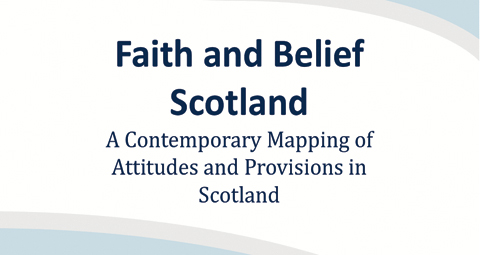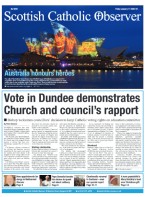BY Ian Dunn | June 13 2014 | ![]() 0 COMMENTS
0 COMMENTS ![]() print
print

Government warned of new sectarianism
Publication Date: 2014-06-13
Revealing new Scottish report highlights that a push for ‘equality’ is polarising those with and those without faith
A Scottish Government report has warned there is a ‘risk of a new sectarianism developing’ between believers and atheists.
The danger came to light when The Faith and Belief Scotland report, produced by Edinburgh University in conjunction with the Scottish Government, was released on Tuesday. The revealing report, the first survey of its kind since the 1851 religious census, was launched at a special event at the Scottish Parliament where it was introduced by John Mason, the SNP MSP for Shettleston, and Roseanna Cunningham, the Scottish Government minister for Community Safety.
In addition to exploring the findings of the 2011 census that the numbers describing themselves as Christian are dropping whereas those identifying with ‘no religion’ are growing, Faith and Belief Scotland suggests there is a widening and worrying chasm of opinion between the two groups.
The ‘report found that attitudes regarding the place of religion in society’ between those who identify as religious and those who do not ‘are becoming increasingly polarised.’
“This runs the potential risk of a new sectarianism developing,” the report states. “There is a clear need for dialogue between members of these groups so mutual understanding can be built.”
A series of questions on social attitudes in a poll of more than 1400 people revealed ‘highly significant differences in responses between people of religion’ and those without.
The report finds that ‘59 per cent of councils paid only lip service to protected characteristics of religion and belief’ and that there is a strong feeling among those who did not identify with any religion that atheistic and secular views do not receive enough acknowledgment at council level.
One of the chief recommendations of the report is the creation of a national advisory board that will pay particularly attention to the voices of secular people, to discuss mutual national areas of interest and concern.
John Deighan, Parliamentary officer for Scotland’s bishops, said that it is positive that the report had recognised this ‘new form of threat’ to people of faith and to religious freedom, but he questioned the percentage of active non believers in Scotland.
“I think we have seen that people intolerant to Catholic views are increasingly coming not from the Protestant community but rather from more militant atheists,” he said.
“The answer is tolerance built of the right to manifest your belief in society but the trouble is secularists are repeatedly attempting to undermined the ability of Catholics to do that.”
Mr Deighan also warned that the actual numbers of militant atheists where quite small and there was ‘a danger in assigning them leadership of a large group who do not identify with religion but are indifferent rather than hostile to it.’
Professor Emeritus Patrick Reilly of Glasgow University, a leading Catholic academic, said the report finally officially recognised the changing nature of anti-Catholicism in Scotland.
“In the past we were criticised for being Catholic now we are criticised for being Christians,” he said. “The old hostility has subsided and between the churches there has never been a better relationship but increasingly we face the charge of being against the spirit of the age.”
Dr Anthony Allison of Edinburgh University, the report’s lead researcher, said working on it had been a privilege but there was a definite need for further and better-funded research to draw a fuller picture of the religious experience in Scotland.
www.faithandbeliefscotland.co.uk
– Read the full version of this story in June 13 edition of the SCO.










